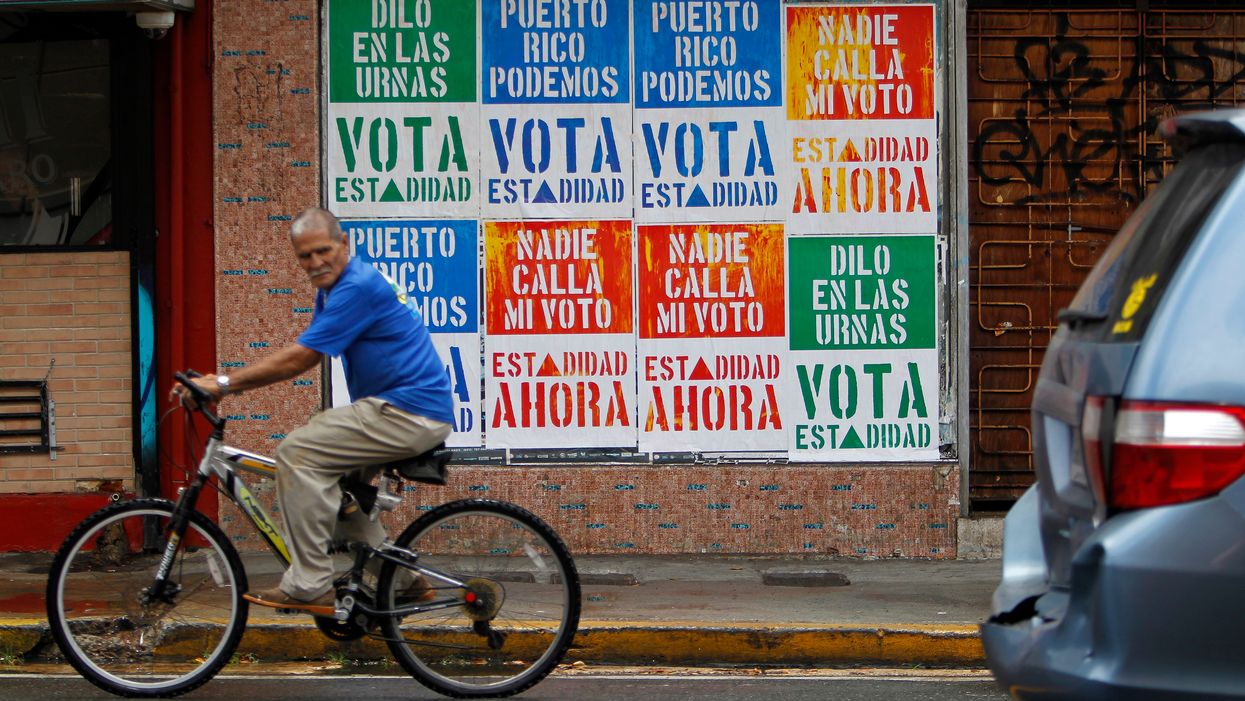Puerto Rico will vote on whether to seek statehood or independence in November, the latest ballot measure posing a fundamental question about the future of American democracy.
The outcome of the referendum will compel the island's government to negotiate with Washington the details of one of those options for ending a system in place for 70 years: Puerto Ricans are American citizens who are exempt from federal income taxes and have significant local autonomy, but in return they get much less federal aid than the states and have no electoral votes or voting members of Congress.
The referendum is ultimately non-binding because Congress and the president would have to agree to end Puerto Rico's current commonwealth arrangement. But the result will still send a signal about the desires of Americans now lacking full democratic rights – and could intensify or deflate momentum for statehood in Washington, D.C.
Residents of the nation's capital, who have been pressing consistently and for decades to become the 51st state, hold out hope they might get their wish if Democrats control both Congress and the White House next year.
But the people of Puerto Rico have sent inconsistent and ambivalent signals in five previous referendums in the past half century. Maintaining the status quo received the most votes in 1967, 1993 and 1998, after which statehood has come on strong — although the most recent plebiscite, three years ago, was boycotted by one of the three major political parties and so turnout was just 23 percent. Outright independence has never been supported by more than 6 percent.
The new measure will be the first offering residents only the options of statehood or independence, also dubbed "free association."
The island's political parties align mostly on the issue of political status, and Gov. Wanda Vázquez Garced as well as a majority of the Legislature belong to the pro-statehood New Progressive Party.
"Our people will have the opportunity once and for all to define our future," the governor said in signing the referendum bill Saturday. "It's never too late to be treated as equals."
The vote will come at a time of intensifying disillusion among Puerto Ricans about their treatment by Washington. The island has struggled to obtain all the federal aid it says is needed to recover from hurricanes Irma and Maria, a string of strong earthquakes and the coronavirus pandemic. And its economy has been weakened in part by the end of federal tax incentives that had steered businesses to the commonwealth.
Congress has not moved legislation in response to any of the earlier referendums and there's no guarantee it would next year, either. President Trump's clearest statement on the matter, two years ago, was that "Puerto Rico shouldn't be talking about statehood until they get some people that really know what they're doing." His Democratic challenger, Joe Biden, has not taken a firm stand on the island's future.
Puerto Rico's population of 3.2 million is closest to that of Iowa, suggesting statehood would mean four House members for the island as well as a pair of senators. Unlike D.C., which could be counted on to elect nothing but Democrats to Congress if it were a state, the partisan nature of a potential Puerto Rican delegation is unclear.
Other prominent democracy reform measures that have won spits on statewide ballots Nov. 3 include proposals to open Florida's primaries to all voters, have Colorado quit a promise to pledge its electoral votes to the national popular vote winner, roll back Missouri's two-year-old partisan gerrymandering reforms and institute an independent redistricting commission in Virginia.




















Trump & Hegseth gave Mark Kelly a huge 2028 gift